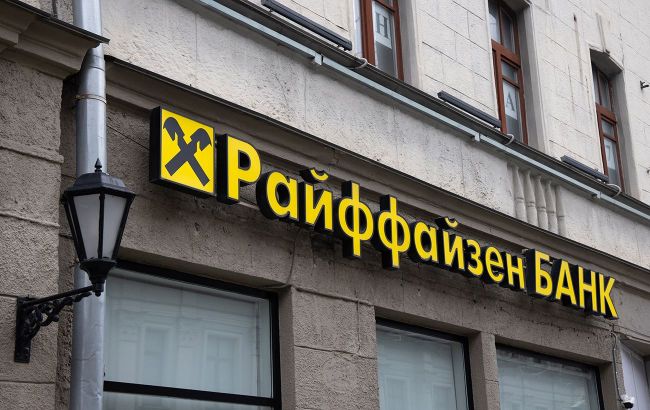US and EU increase pressure on Austria's Raiffeisen Bank over Russian ties - Reuters
 Photo: Raiffeisen Bank is under pressure from the US over its ties to Moscow (Getty Images)
Photo: Raiffeisen Bank is under pressure from the US over its ties to Moscow (Getty Images)
Washington and the European Central Bank (ECB) are increasing their pressure on the Austrian bank Raiffeisen to reduce its ties with Russia, Reuters reported.
According to Reuters, Raiffeisen and Austria are at the forefront of a global US campaign to isolate Russia by intensifying sanctions against the banking sector and restricting access to Western goods more than two years after the invasion of Ukraine.
The agency spoke with more than a dozen individuals, including senior officials involved in negotiations with US, Austrian, and European regulators and sources directly familiar with the bank's strategy.
In a written request sent to the bank, the ECB, and the Austrian government on May 8, Washington threatened to restrict Raiffeisen's access to the dollar, which could be a potential death sentence for Russia's largest Western creditor.
Interviews reveal that the company remains under direct international pressure to exit Russia despite halting a transaction to purchase a stake in the Austrian construction company Strabag, owned by sanctioned Russian businessman Oleg Deripaska.
The interviews also show that Raiffeisen ignored warnings from European regulators more than a year ago that it was playing a risky game with Washington regarding its business in Russia.
Washington's threat to penalize Raiffeisen has not been withdrawn, and the US continues to closely monitor the bank, its relations with Russia, and any potential sanctions violations, according to two sources familiar with the process.
According to a person familiar with the US position, if Raiffeisen was willing to make a deal connected to Deripaska, whom the US accuses of participating in a Kremlin-backed campaign to interfere in the 2016 presidential election, it might also take other risks.
Washington has the right to fine banks that violate sanctions or disconnect them from the dollar. For example, in 2014, the French bank BNP Paribas was fined $9 billion for violating US sanctions against Sudan, Iran, and Cuba.
Catastrophic consequences
With significant industrial assets, over 18 million customers from Vienna to Moscow, and 44,000 employees, Raiffeisen is a financial backbone for Austria and much of Eastern Europe.
With the start of the war in 2022, Russia became an even more profitable source of income for the bank. As fees for foreign payments sharply increased, Russia accounted for about half of the group's profits in the first three months of this year.
Nevertheless, a source familiar with the bank's mindset said the US Treasury Department's threat to undermine Raiffeisen continues to deeply resonate with its management. The source added that such a move would be "fatal," partly because major corporations that use it for international payments would leave.
One source familiar with the US position said the authorities are aware of the catastrophic consequences such a move could have for Raiffeisen and its impact on the financial system as a whole, and they are acting cautiously.
This is why Washington would like European regulators to force the bank to reduce ties with Russia, said two sources directly familiar with the process.
The Office of Foreign Assets Control (OFAC), responsible for enforcing US Treasury sanctions, launched an investigation into Raiffeisen's activities in Russia in early 2023.
Russia has clarified that it wants Western banks like Raiffeisen to stay, which could make it difficult for them to get permission to leave and withdraw their funds.
According to one source, Raiffeisen has about €5 billion in frozen capital in Russia, and the deal with Strabag was aimed at freeing up $1.5 billion of this amount.
The bank has repeatedly stated its intention to leave Russia but cannot say when this might happen.
"Instead of pulling back from Russia, Raiffeisen has spent more than two years looking for loopholes and gaps to get its money out," said Nina Tomaselli, an Austrian MP from the Green Party, part of the country's ruling coalition.
In May, the US Treasury Department warned Austrian Raiffeisen Bank International that access to the US financial system could be restricted. A few days after receiving the letter, Raiffeisen canceled the deal related to Oleg Deripaska.
Raiffeisen is the largest Western bank still operating in Russia. Raiffeisen also operates in Ukraine, where Raiffeisen Bank (formerly Raiffeisen Bank Aval) is the third largest bank in terms of deposits and number of branches.

